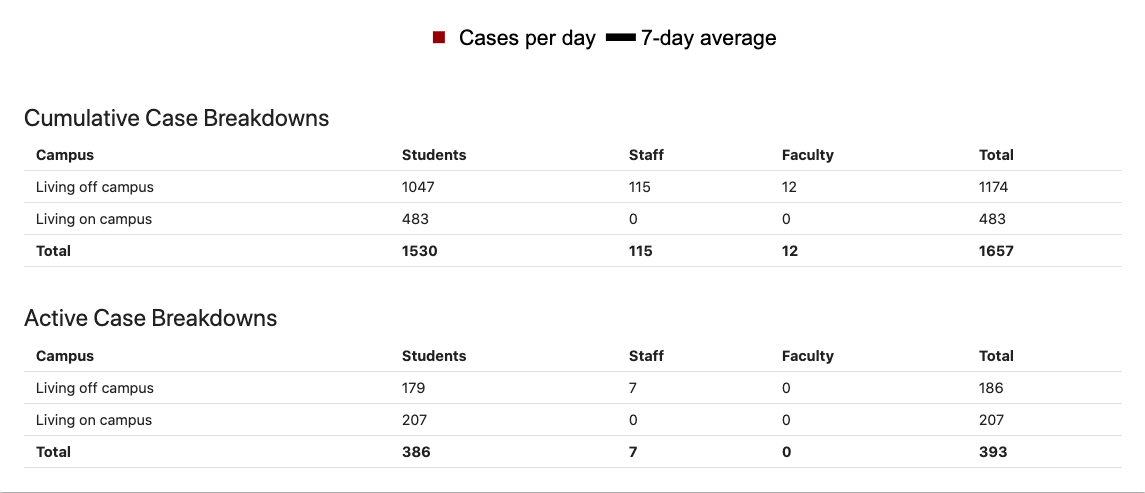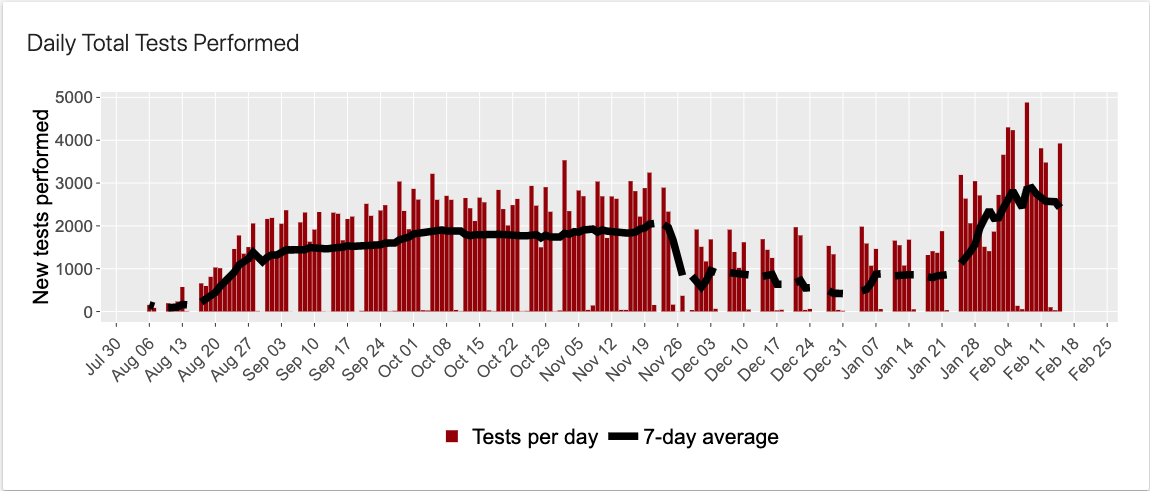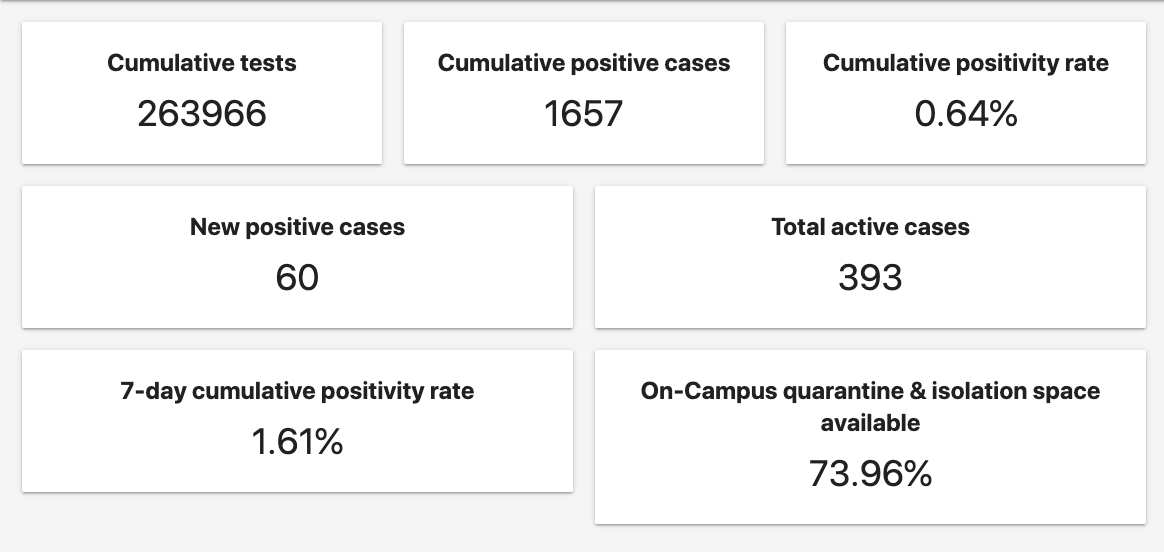


The graphics above are courtesy of the University of Massachusetts, Amherst.
By Casey Roepke ’21
News Editor
After a rise in community and student COVID-19 cases, with 393 active positive cases as of Feb. 18, the University of Massachusetts Amherst has declared a “high risk” operational level, implementing the most restrictive measures outlined in the university’s virus safety protocols. At the Feb. 8 Amherst Town Council meeting, representatives of the administration announced that the university would implement measures to control the spread of COVID-19, including transitioning to entirely online classes, canceling athletic practices and competitions and instituting a self-isolation order for the student body. In a presentation given at the meeting, UMass officials wrote that “all students, on campus or off, [are] required to self-sequester.” Furthermore, the Daily Collegian reported that 354 students are currently facing sanctions for violating the university’s Code of Student Conduct by breaking quarantine regulations, guest policies and social distancing rules, among other acts.
According to videos obtained by the Daily Collegian, the Theta Chi fraternity house hosted two parties with masses of students without face masks or social distancing in the week before the outbreak in COVID-19 cases at UMass Amherst. Theta Chi has since been placed on interim suspension by the university.
An investigation by the Daily Collegian revealed delays in university contact tracing and students refusing to follow safety protocols, both of which may have led to the outbreak.
As a result of the rise in positive cases, two-thirds of UMass resident assistants and peer mentors published an open letter on behalf of the Resident Assistant and Peer Mentor Union communicating a “vote of no confidence” in UMass Amherst Chancellor Kumble Subbaswamy. They attached a list of demands for the university to follow to restore trust in the community. The list includes increased sanctions for COVID-19 guideline violations, the hiring of more contact tracers and quarantine staff and continued employment and compensation for student workers, staff and faculty.
“No one should have to choose between paying rent or risking COVID[-19] infection,” representatives of the Resident Assistant and Peer Mentor Union said in their letter. “UMass must make critical investments to stop both the current and future spread of COVID[-19] and ensure the economic well-being of our entire community.”
This growth in COVID-19 cases positions UMass Amherst as the most infected campus in the Five College area. Both Amherst College and Mount Holyoke College remain operating at a “heightened awareness” level, the second degree in each college’s operating plans. Smith College, which began its spring semester this week after an extended January break, remains in “Initial Operating Mode,” which requires all on-campus students to quarantine for 14 days.
